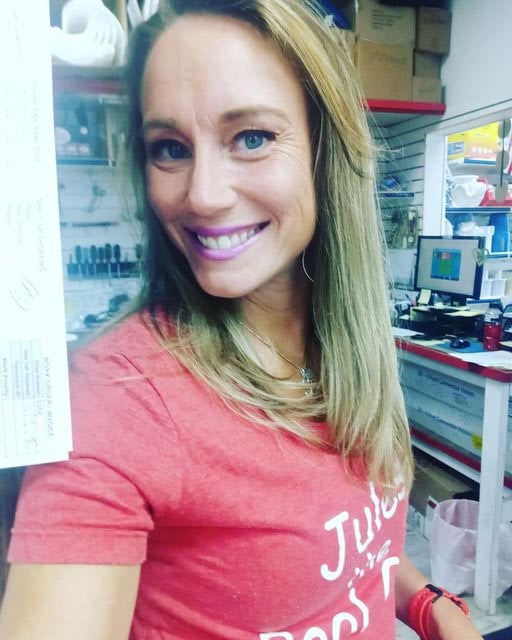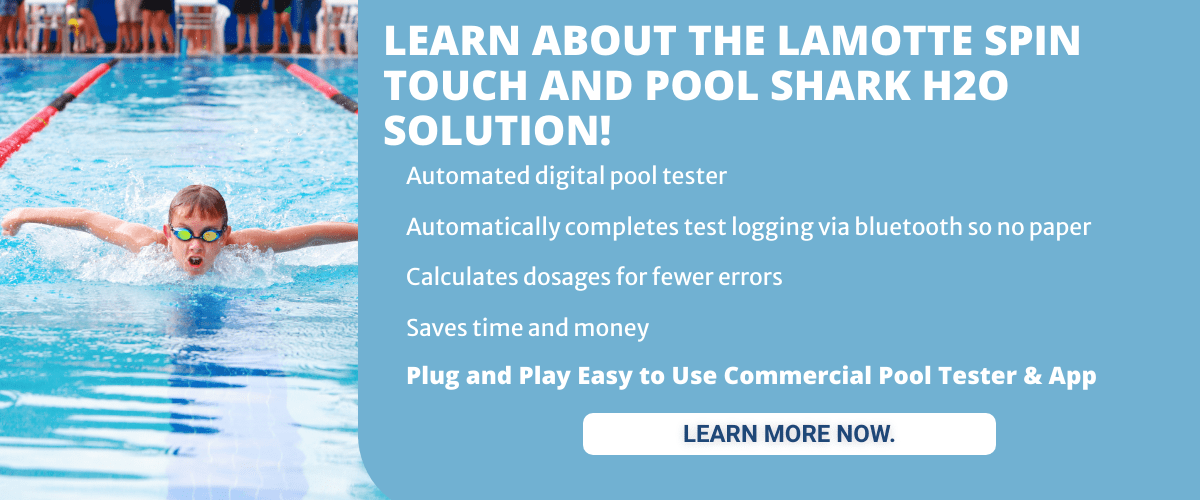
We are pool operators, Water is our world. We are professionals. We want safe and healthy water for our guests, clients, and of course our employer. Did you know we may not only be doing something incorrectly but illegal? (I will hold for your gasps). I am talking about the proper and compliant way to test the water. We all know water testing is of the utmost importance in maintaining a clean, beautiful, and safe body of water. But there are rigorous guidelines in place on how often, how to record, and what method to use.
Commercial Pool Test Strips
Test strips are a “litmus test” technology that utilizes photonic color matching to compare to a chart to show if water is in and out of range, Because it does not give you an exact range, they are open to interpretation. Test strips are often used improperly by letting them sit too long after submersion or, in some cases, not long enough. You really have a brief window for getting the most “accurate” reading. Test strips are great for homeowners, but not for commercial pool operators. Not only because they are not as accurate, but are NOT ALLOWED by most county health inspectors to use a reference on your pool log. You cannot rely on test strips to keep your water safe or pass an inspection. SMH
Commercial Pool Reagent Test Kits
These test kits come in a variety of sizes, with Taylor being the leading industry brand. They test DPD and OTO. Total versus Free chlorine. Free chlorine is the killing form of sanitizer and what we should be closely monitoring. Total chlorine is important as well because the difference between Total Chlorine and Free Chlorine will let us know if we have any chloramines aka combined chlorine. Having chloramines in the water is irritating to bathers and is useless at disinfecting the water.
Test kits come with drop bottles known as reagents. The bigger the test kit, the more reagents. They need to be stored in a cool, dry place and cannot be exposed to extreme heat or direct sunlight. I’ll bet if you dust off that blue box in the corner of your equipment room, you’ll be surprised to find that many of your reagents are actually expired. Were you even aware they are stamped with an expiration date? While some companies will boast 2 seasons out of reagents, I err on the side of caution and suggest replacing them every year.
One has to be accurate in testing with a reagent test kit. Always fill the water vessel to the marked line. Hold the bottles directly up and down, not at an angle. Don’t flick your wrist when adding the drops. By holding them horizontally and gently applying pressure, you allow the bottle’s gravity drop design to work, giving you even-sized drops, and thus, more accurate readings. You would then plug these numbers into your old-fashioned paper logbook. (If you can find it) or get hip to the newer technology of the Pool Shark H2O App.
Spin Labs
Speaking of technology, it has advanced tremendously over the years and this extends to the pool industry, including swimming pool water testing. A spin lab is available in a plug-in and portable version. LaMotte is popular among both versions. How these work is by adding a small sample of your pool water to a “spin disc” and then placing it in the digital photometer. The results either pop up on the computer you are using or can be sent to your personal device by using the Pool Shark H20 App. This App not only gives you your findings but gives you dosing instructions AND keeps a meticulous log for you. Surprise inspection? No prob when you have the modern technology of the Pool Shark H20. In my opinion, if the machine is properly calibrated ( see your owner’s manual on how to do this), this is the easiest and most accurate way to test, treat and log your pool water test findings.
Commercial Pool Testing
I cannot stress enough the importance of testing the water as often as possible. Some commercial pools in some counties require the chlorine to be tested hourly. Who the heck wants to have to write all that down every hour? Not this pool pro. We test often because it is the only way to keep our water safe, which is our number one priority and what we were hired to do. Why not multi-task and not only do it right but do it with ease. Pool Shark H20 to the rescue, once again!
See you poolside!
More Commercial Pool Testing Resources
Guide to Public Pool Testing Requirements
How Often Should Public Pool Water Be Tested?
The Ultimate Guide to Swimming Pool Logs
PDF & Excel Printable Pool Log Sheet
Benefits of Using A Pool Chemical Monitor
Which LaMotte Pool Test Kit is Right for Your Commercial Pool Business?



